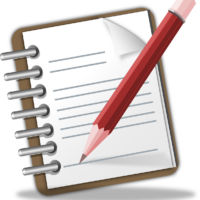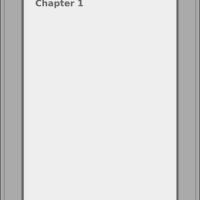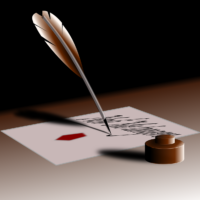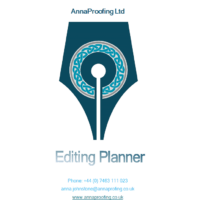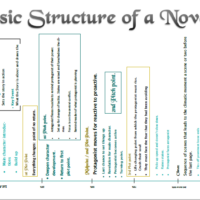by | Dec 23, 2016 | Blog, Video
I am really out of practice with the software, so bare with me. They will get better. I have not yet bucked up the courage to actually appear in a video, but give me time and I am sure it will happen.
[youtube=https://youtu.be/iwRm73Yt0hc]
by | Dec 7, 2016 | Blog
10 powerful tips on avoiding telling writing in creative writing.
“Creative writing teachers love to dole out wisdom or advice about fiction writing, as if they’re part of some esoteric order that guarantees enlightenment to all who memorize their pearls of wisdom. One of the most often quoted axioms is: “Show, don’t tell.” The idea is to keep students from explaining the story, that is, to stop them from using telling writing and get them to use showing writing instead.”
Source: Ten Tips to Help You Avoid Telling Writing | Scribendi.com
by | Dec 6, 2016 | Advice, Blog
Choosing an editor is not easy. The good ones have fees that could choke a horse. However, they are GOOD editors, so the fees they charge are worth it. If you can afford those fees. Unfortunately, many Indie authors just can’t break out that kind of cash.
Enter the rip off artists. They come in many levels of incompetence from authors who just want to make some side cash but don’t really know how to edit, to outright thieves who will take your money and give you nothing in return. Unfortunately, the latter kind thrives on the internet. We have all heard the stories of writers victimised by people calling themselves editors but didn’t even fix spelling mistakes, much less formatting, style, or continuity issues. As an editor myself, I am always learning and improving my craft this kind of thing makes me so angry – not least because it taints all freelance editors with the same reputation – but rest easy. This post is not an estate agent type post telling you to only trust me and ignore all those other editors. Finding the right editor for you is important.
So here are some guidelines for how to find the honest ones, pick an one, and dealing with them. Feel free to pipe up in the comments with any other suggestions I might have missed.
- Go with someone you know or who is recommended. If you can’t do that, the following steps can help.
- Do your research: collect reviews and referrals. How do they respond to complaints?
- Ask for a sample edit from the first chapter of your book, before any money changes hands. A new editor should be willing to do this to get your business, and most honest editors offer this as standard.
- Have someone you already trust and knows what they are doing, read the sample and let you know if they are good.
- Try to find one who will take a deposit up front and charges balance when the job is complete. If they demand the whole balance up front, steer clear. That said, I do expect full payment up front for small jobs (less than 10 pages =2500 words), but 50% of that is refundable if the client is not happy with my work
- Generally, I would advise you to avoid those who demand the full amount upfront. If their work is genuinely substandard –this is not the same as being unhappy about harsh feedback- do not pay the balance and demand your deposit back. New writers should be aware that it often takes several rounds of editing before your work is publishable.
- No editor can wave a magic wand and suddenly turn an unstructured first draft into a literary marvel in one go, and no reputable editor will claim to be able to. It depends entirely on the submitted work.
- Not all editors offer the same services or deal with the same type of text. You need to find out which genre they will work with and what levels they offer. I offer all four levels and am pretty much happy to edit whatever crosses my desk. Others may only deal with certain genres, or offer higher level editing. An honest editor will use your work to assess the level you are writing at and determine what the work needs. They will advise you what needs to be done, and if they are not able to offer the full scope of work required, you may find they will point you in the direction of someone who can.
- If you have ever dealt with an editor who has given you less than the quality of work promised for your money, you still have rights. A freelancer is subject to the same consumer laws as everyone else.
- You want to engage with someone who will cut deep and pick up the typos and mistakes. Remember, a good editor is on your side. A reader is not. The editor wants you to be able to publish your best work possible. You are not looking for ‘nice’. If they go too easy on you or appear to be in a rush to get to print, it can still count as bad editing. The reader will not be nice or give you the benefit of the doubt as it’s your first book. They will, at best, put your book down and never read your work again. At worst, they will leave a scathing review from wherever they bought it, and they will still never read your work again.
- A good editor will not point you at a publisher or insist that their services rely on you going with a particular press. If they do, they are probably taking a back-hander. I’m afraid you will have to do your homework for that too.
by | Nov 24, 2016 | Blog, Courses
Rayne Hall, for those not familiar with her, is a horror writer but she also writes some very helpful writing-guides. The subjects of these vary between marketing ideas, advice on how to write specific scenes, and how to self-edit (all very helpful to new writers or those who fancy a change of genre). You’ll still need an editor. Even editors use editors.
Now she is offering a free workbook when you sign up to the mailing-list. Be aware that it might take a day to come through so make sure you have the email address (from the confirmation) on your safe-senders list or it will end up in the junk file.
What is it?
This is a twenty-six-page collection of fifteen individual writing exercises, aimed to develop your own voice within your existing work. These exercises are very helpful and will aid you in your self-editing process. By all means allow your favourite authors to influence your work, there is even an exercise to pick your top five (harder than you think to narrow down: I came up with ten on the spot), but the idea is to emulate, not imitate. This will be a great help to new writers, and those who want to improve their work.
by | Nov 24, 2016 | Advice, Reblogged
Want to know the most important thing about writing dialogue in fiction? If it sounds like a conversation you’d hear in the real world, you’ve gone horribly wrong somewhere.
Seriously. The next time you’re on a crowded bus or sitting by yourself in a bustling restaurant, just listen to the two people closest to you talking. You’ll hear them…
http://www.novel-writing-help.com/writing-dialogue.html


